The 3rd International Forum on Engineering Education was jointly launched by Tsinghua University, the Chinese Academy of Engineering (CAE) and the United Nations Educational, Scientific and Cultural Organization (UNESCO) on the night of December 7.
Under the theme of "Sustainable Innovation in Information Technology," the online forum brought together about 500 experts and scholars in the sectors of engineering education, disciplines and industries, who will hold talks and exchanges about how to give full play to the roles of engineering education in promoting sustainable development, making digitization more intelligent and advancing the growth of engineering education.
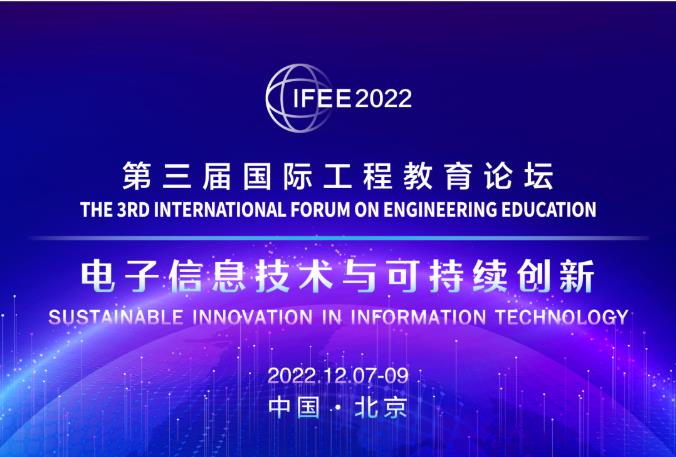
CAE President Li Xiaohong, Tsinghua University President Wang Xiqin, Director of UNESCO's Beijing office Shahbaz Khan, as well as Secretary General of the Chinese National Commission for UNESCO Qin Changwei attended the opening ceremony.
Wang Guangqian, vice-president of Tsinghua University, presided over the opening ceremony.
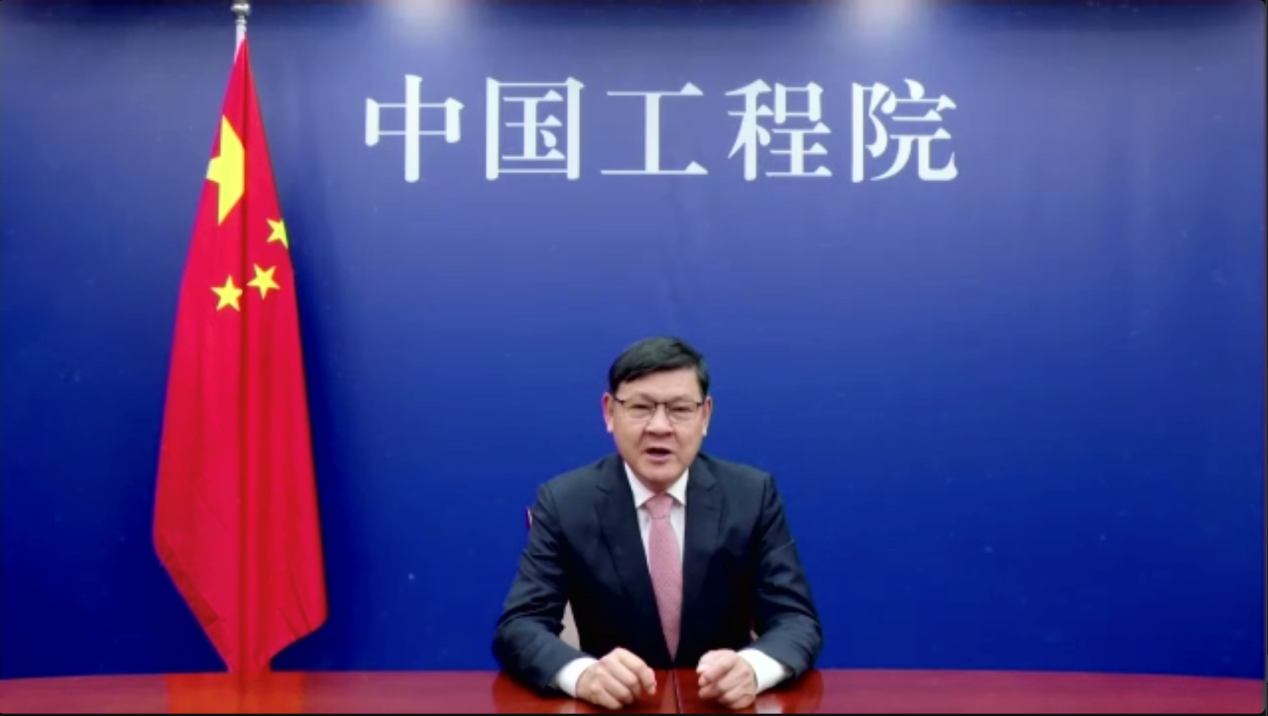
In his speech, Li said that General Secretary of the Communist Party of China (CPC) Central Committee Xi Jinping stressed in his report to the 20th CPC National Congress that the country must regard science and technology as a primary productive force, talent as a primary resource and innovation as a primary driver of growth, fully implement the strategy for invigorating China through science and education, the workforce development strategy and the innovation-driven development strategy, open up new areas and new arenas in development, and steadily foster new growth drivers and new strengths. Li added that engineering technology and education are crucial in addressing major global challenges, and that human talents in the engineering sector are of vital importance to the development of the scientific and technological revolution and industrial transformation.
Li emphasized the importance of exchanges and mutual learning to the high-quality development of engineering education and called on attendees to share their thoughts and experiences, come up with insightful proposals, and strengthen their friendship with worldwide partners.
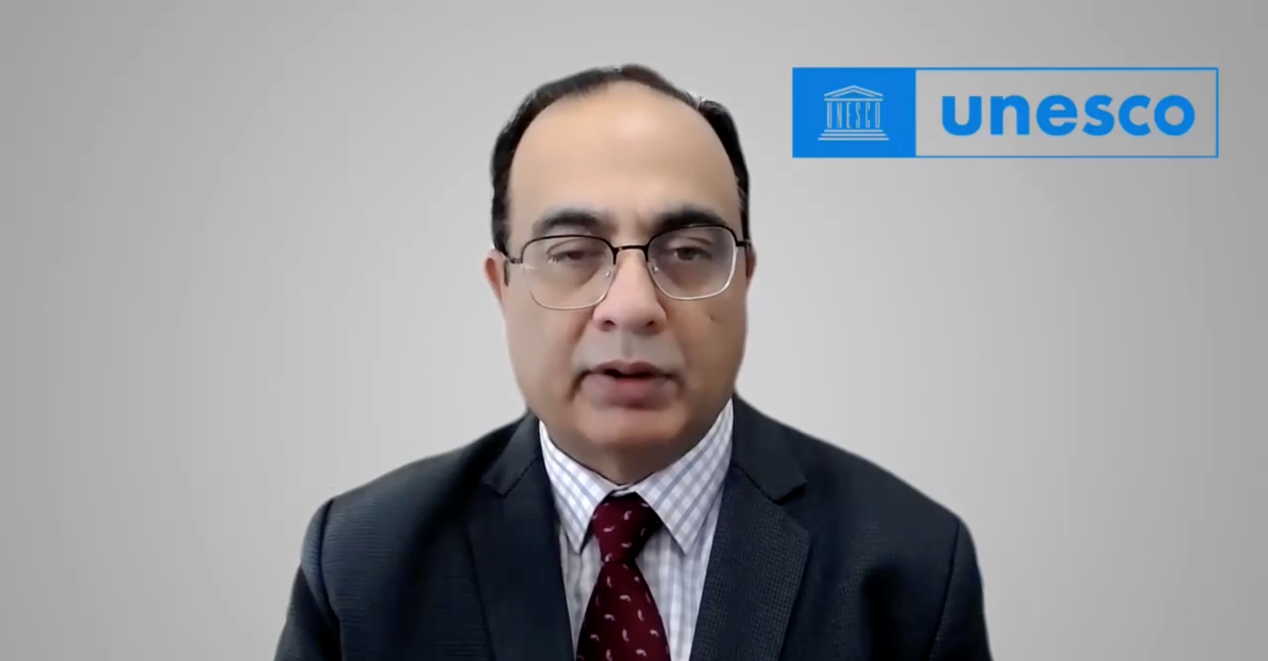
Shahbaz Khan said that the UN agency has maintained close cooperation and exchanges with Tsinghua University on the development of engineering education since establishing the International Centre for Engineering Education (ICEE) at the prestigious Chinese university six years ago. He noted that engineers have used their scientific knowledge and experience to promote the realization of the sustainable development goals and to bring benefits to all of mankind.
Khan said that engineering innovation has become a paramount factor in transforming the landscape of social development and that the coexistence of crises and opportunities has set higher requirements for future engineers, engineering practitioners and researchers. He added that the forum has provided attendees with a valuable platform to deepen their collaboration, promote research projects related to sustainable development, have a better understanding of engineering education, and to improve and innovate talent cultivation mechanisms.
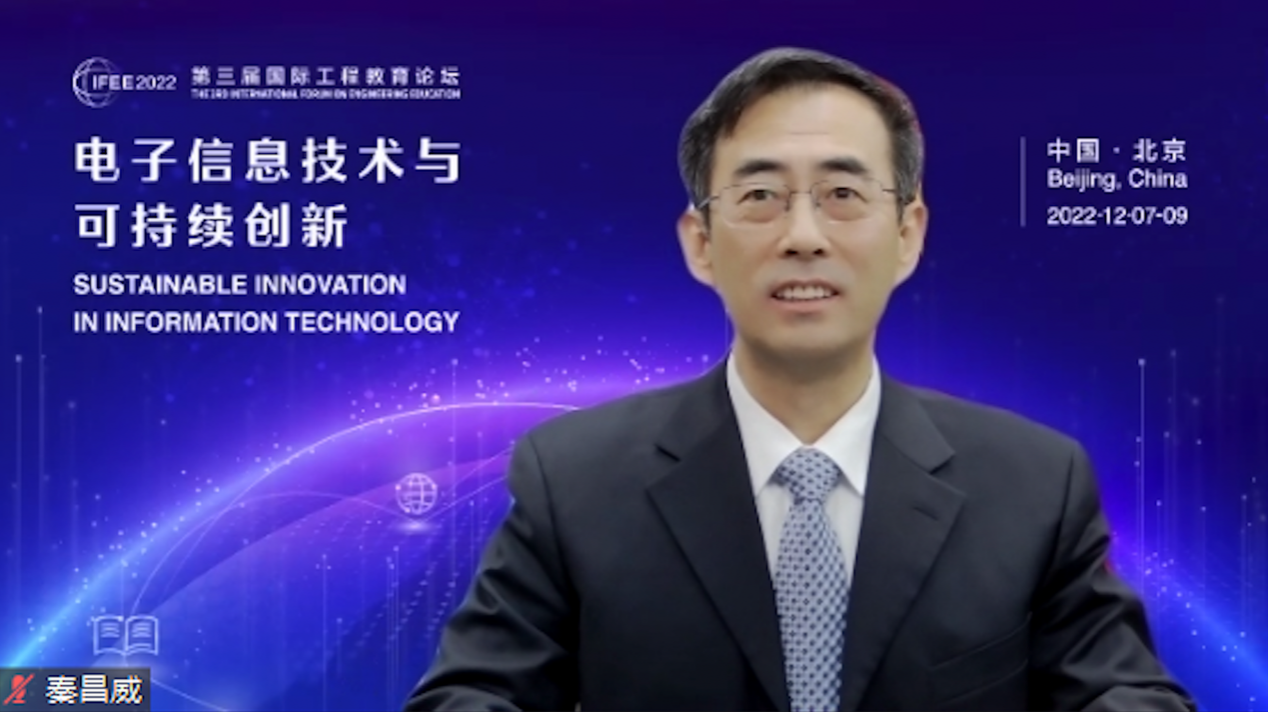
Qin said that all sides should strengthen their exchanges and cooperation on the development of engineering education as the dynamic growth of engineering technology has expedited the revolution of engineering education. He hoped that the forum will adhere to UNESCO's guiding principle of opening science to all people, focus on educational revolution with a global vision, explore effective approaches to resolve major issues connected to engineering education, share experiences and practices in the cultivation of high-caliber talents in electronic information technology, put forward proposals for the further revolution of engineering education, forge consensus for cooperation, and make new contributions to the revolution of global education and the development of global engineering education.
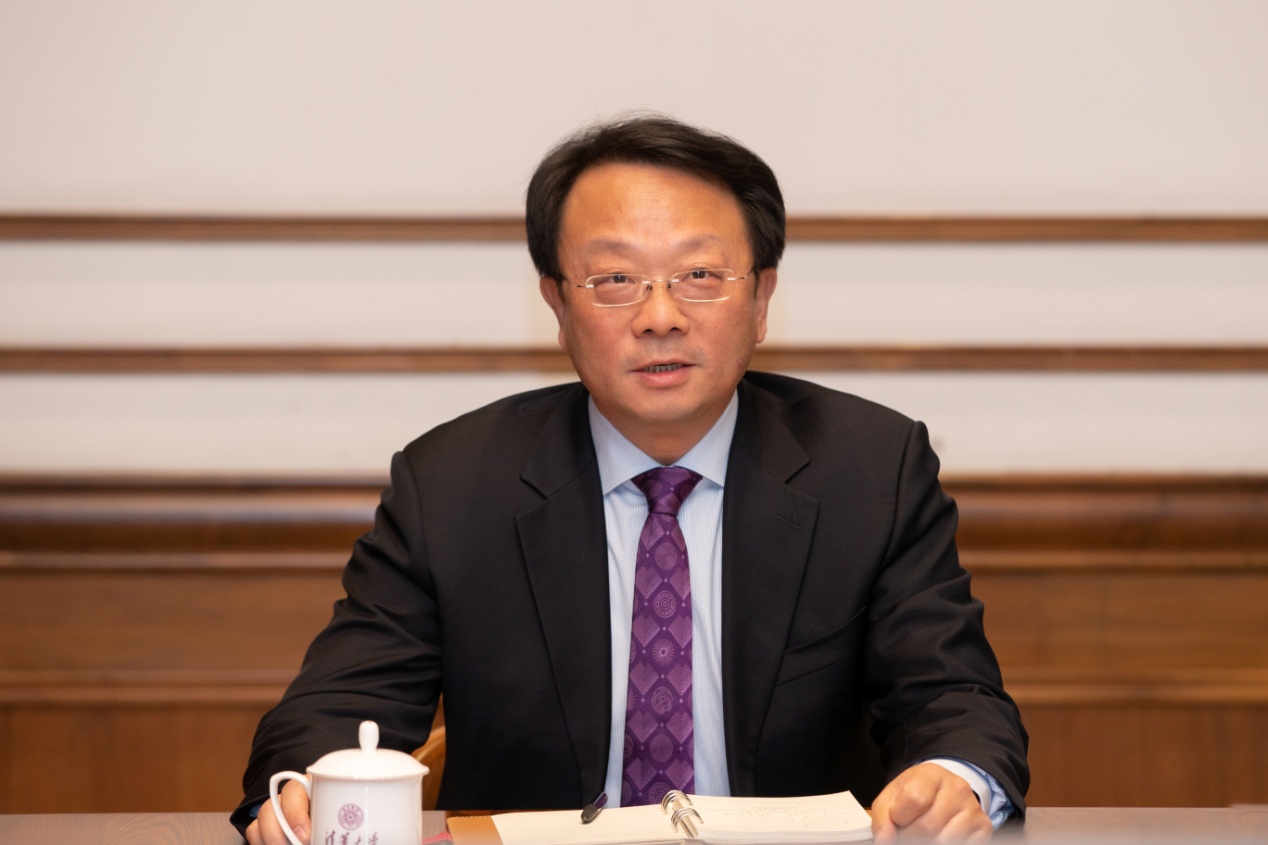
Wang Xiqin delivered a speech themed on “Engineering Education: Empowering digital and intelligent transformation, and promoting sustainable development.” Wang said in his speech that engineering education fully reflects the characteristics of the times in higher education development. The world today is confronted with accelerated changes unseen in a century, which have a profound effect on global higher education. The educational mode and form of higher engineering education are quietly changing: first, it is more integrated, and talent cultivation presents cross-discipline characteristics; second, it is more innovative, and the emerging engineering disciplines break the traditional education pattern; third, it is more comprehensive, and the training process is integrated with elements of the humanities and social sciences; fourth, it more effectively faces real life problems.
He also noted that engineering education leads in advancing the realization of sustainable development goals. In Transforming Our World: The 2030 Agenda for Sustainable Development approved by the UN in September 2015, the 17 sustainable development goals (SDGs) are the systematic development framework and common action plan proposed by mankind based on historical experience and future vision. Each of them is related to engineering and the fulfillment of each goal depends on engineering.
It is said in the Report to the 20th National Congress of the Communist Party of China that to build a modern socialist country in all respects we must, first and foremost, pursue high-quality development.
The new development concepts of innovation, coordination, green procedures, openness and sharing are essentially consistent with the concept of sustainable development. Engineering education, as a hub of education, science and technology, and its related talent, is the basic and strategic support for achieving high-quality development and fulfilling the sustainable development goals.
Wang stressed that the digital and intelligent transformation of engineering education requires electronic information empowerment.
Digital and intelligent transformation is the trend of economic and social development, and empowering it with electronic information is the direction in which higher engineering education is developing and an effective way to achieve sustainable development. Higher engineering education should incorporate electronic information technology into the talent training program in various engineering fields, speed up the deep application of digital and intelligent technology in the field of engineering education, and strengthen its close interaction and collaboration with industry. It is important to promote the integration of production and education, and educate people cooperatively. It is hoped that we can give full play to the empowering advantages of electronic information technology to draw a bright future for the development of engineering education and for the sustainable development of human society.
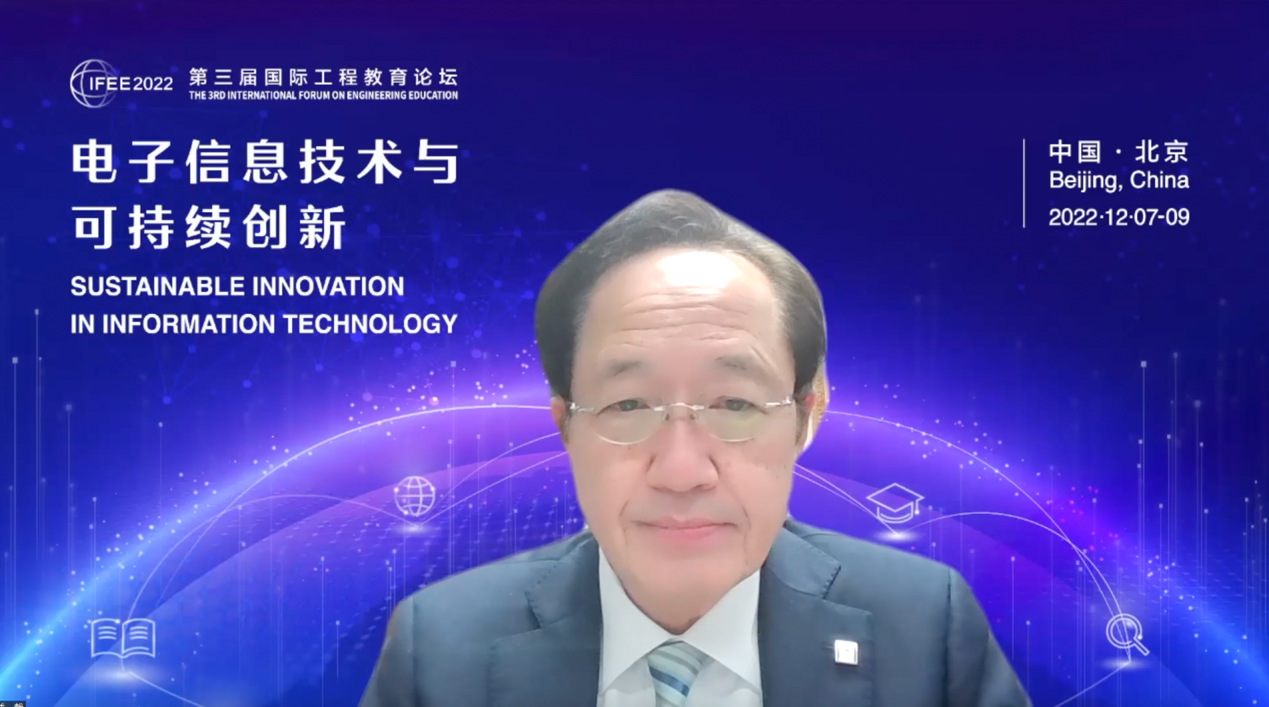
Kazuya Masu, president of the Tokyo Institute of Technology (TIT), said that engineering education has not only fostered professionals and engineers in certain fields, but has also cultivated those with a wider vision, capable of promoting social and economic development with their knowledge and skills. He spoke with participants about the efforts and practices taken by the TIT to advance the development of engineering education and strengthen educational integration with the liberal arts and sciences.
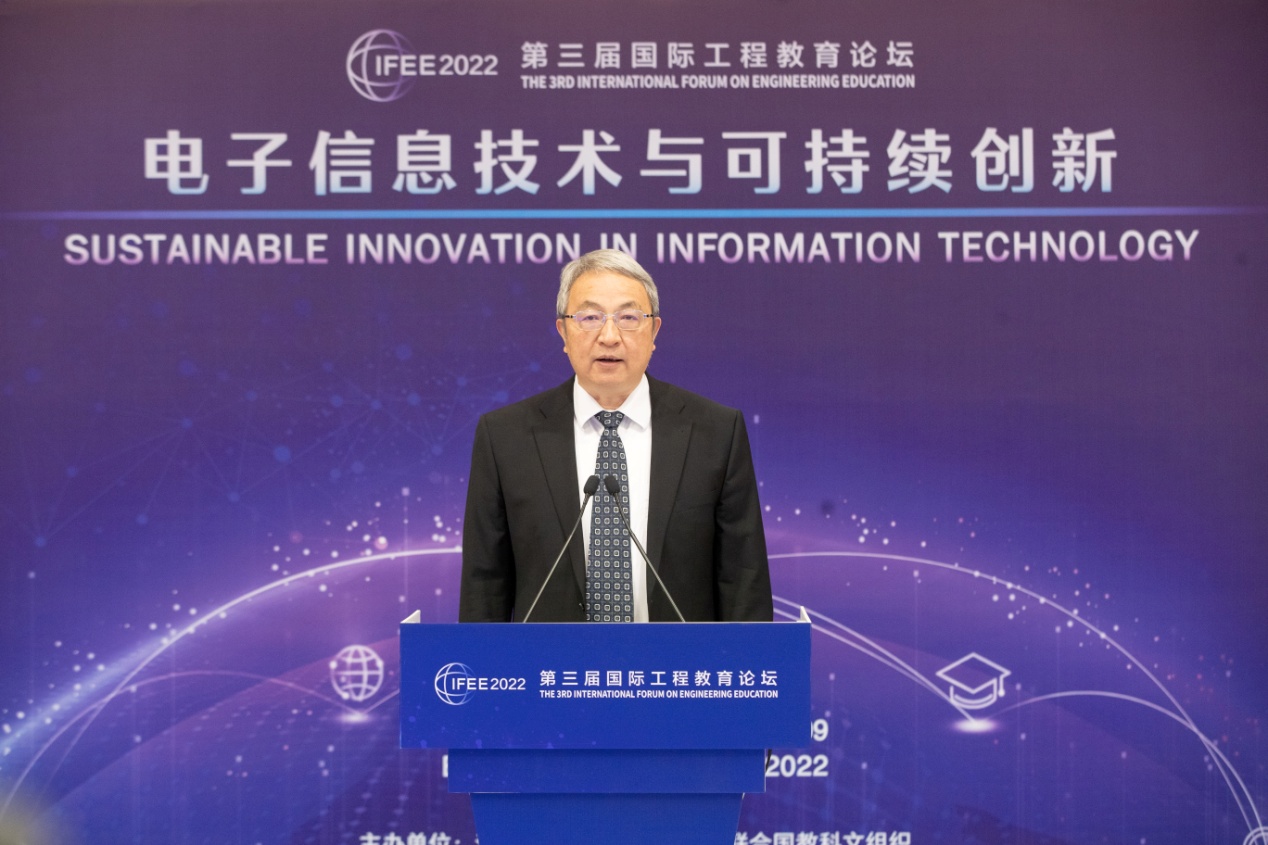
Gong Ke, director of the Academic Committee of Nankai University and executive director of the Chinese Institute of New Generation Artificial Intelligence Development Strategies, and Wang Xiaoyun, general-manager of China Mobile Communications Group's technical department, delivered thematic reports on engineering education and the sustainable development of the mobile telecommunication industry at the opening ceremony.
The three-day forum comprised eight sub-forums, during which over 80 experts, scholars and enterprise representatives held dialogues over a wide range of topics, including electronic information, urban resilience, digital health, a new power grid and smart new energy vehicles.
Editor: Lihan, Guo Lili

